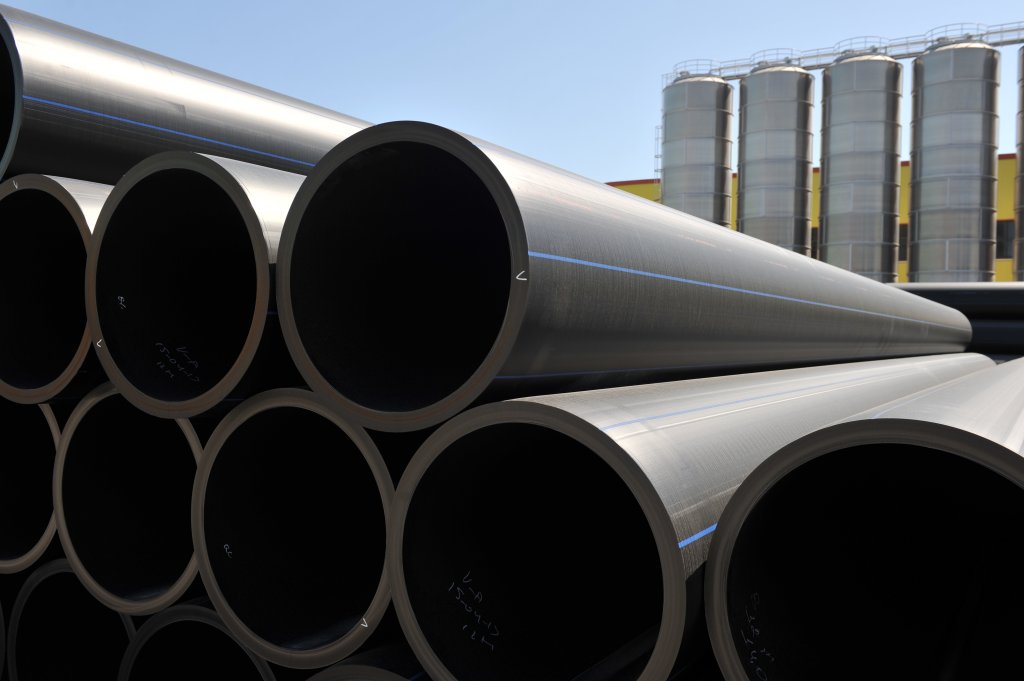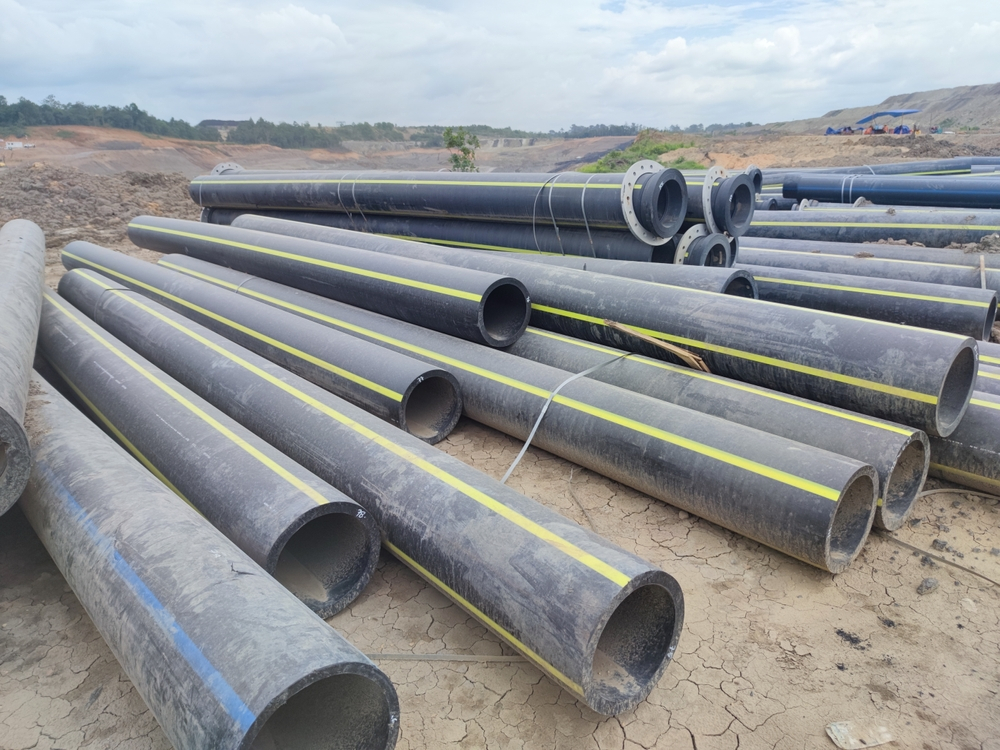Understanding the Key Conveniences of HDPE Pipe for Water and Wastewater Monitoring
The use of HDPE pipe in water and wastewater monitoring presents various benefits that warrant consideration. Its remarkable longevity and long life expectancy make it a preferred choice for numerous projects. Furthermore, the product's resistance to deterioration and chemical damages enhances its integrity in numerous environments. The advantages prolong beyond just longevity and resistance. Midland TX HDPE Pipe Fittings in Stock. Exploring its cost-effectiveness and environmental impact discloses much more compelling factors for its extensive adoption in modern-day infrastructure
Exceptional Durability and Longevity

HDPE pipeline stands apart for its extraordinary durability and durability, making it a recommended choice in water monitoring systems. Created from high-density polyethylene, these pipelines can endure substantial stress and stress, ensuring dependable efficiency with time. Their robust nature permits them to endure extreme ecological conditions, consisting of temperature variations and dirt activities, which can cause various other products to fail.
The lifespan of HDPE pipelines frequently surpasses 50 years, offering a cost-effective option for municipalities and sectors alike. Additionally, the product's light-weight homes streamline installment, minimizing labor costs and timeframes. This sturdiness reduces the need for frequent repair services or substitutes, additionally boosting its financial appeal.
In water monitoring applications, the dependability of HDPE pipes indicates less disturbances and improved service continuity, making them essential to sustainable facilities growth. The combination of durability and durability strengthens HDPE's role as a keystone in effective water administration remedies.

Resistance to Corrosion and Chemical Damages
While several materials surrender to corrosion and chemical damages over time, HDPE pipelines exhibit exceptional resistance, making them ideal for different water administration applications. This strength stems from the molecular framework of high-density polyethylene, which is naturally non-reactive and does not corrode like steels or degrade from exposure to rough chemicals. Therefore, HDPE is highly efficient in settings with aggressive compounds, such as wastewater systems that might contain acids, bases, and organic solvents.
Furthermore, HDPE pipelines can hold up against environmental aspects such as dirt acidity and saline conditions, additionally boosting their viability for diverse applications (custom hdpe pipe manufacturing Midland TX). Their capability to preserve architectural honesty with time reduces the danger of leaks and failures, which is essential in guaranteeing the security and dependability of water distribution and wastewater administration systems. The resistance to corrosion and chemical damages noticeably contributes to the total efficiency and longevity of HDPE piping remedies.
Cost-Effectiveness and Economic Advantages
When considering the financial implications of water monitoring systems, the cost-effectiveness of HDPE pipelines comes to be obvious. These pipes provide lower installment and upkeep expenses compared to traditional products like metal or concrete. Their lightweight nature streamlines transport and setup, causing lowered labor costs. Furthermore, HDPE pipes show a long lifespan, often going beyond half a century, which converts to fewer replacements and lasting cost savings.
Furthermore, the resistance of HDPE to deterioration and chemical damages minimizes the demand for pricey fixings and replacements. The pipes likewise support reliable water flow, reducing power costs connected with pumping systems. By reducing leaks and water loss, HDPE pipelines contribute to substantial economic advantages for municipalities and markets alike. Overall, the preliminary investment in HDPE piping can generate considerable economic returns over the lifespan of the water administration system, making it a sensible option for lasting infrastructure advancement.
Environmental Sustainability and Minimized Influence

Convenience and Flexibility in Setup
Due to the fact that of their unique homes, HDPE pipelines supply exceptional flexibility and adaptability web in installment, making them suitable for a large range of applications. Their lightweight nature permits less complicated handling and transport, reducing labor expenses and installment time. HDPE pipelines can be bent and formed to fit various surfaces and task requirements, which is particularly useful in testing environments.
Furthermore, their resistance to deterioration and chemical damages permits for installment in varied setups without the demand for specialized safety coverings. The ability to fuse joints creates a continuous, leak-free system, enhancing the overall integrity and reliability of the installation. HDPE's flexibility additionally suits ground activity, lowering the threat of damages in locations susceptible to shifting soil. Overall, these characteristics make HDPE pipes not just functional yet likewise a favored choice for water and wastewater management systems.
Regularly Asked Concerns
Exactly How Does HDPE Pipe Compare to PVC in Water Monitoring Applications?
HDPE pipe uses exceptional adaptability, resistance to rust, and longevity contrasted to PVC. Its lighter weight assists in simpler setup, while its long life-span minimizes replacement prices, making HDPE a favored choice in water monitoring applications.
What Is the Life Expectancy of HDPE Pipeline Under Typical Problems?
Under common problems, HDPE pipes can have a lifespan varying from 50 to 100 years. Their resilience and resistance to deterioration add to their long-term performance in different applications, making them a reputable choice for infrastructure.
Are HDPE Water Lines Recyclable After Their Service Life?
Yes, HDPE pipelines are recyclable after their life span. American Plastics HDPE Pipe for Oilfield. They webpage can be processed and repurposed right into new items, greatly minimizing environmental impact and advertising sustainability within the sector, making them a green option for piping remedies
What Is the Installation Process for HDPE Water Lines?
The installation process for HDPE pipes includes website prep work, trenching, pipeline blend or mechanical joining, backfilling, and pressure screening. Correct techniques ensure a long lasting and reliable system for transporting water and wastewater effectively.
Can HDPE Pipeline Be Made Use Of for Both Potable and Non-Potable Water Systems?
Yes, HDPE pipelines can be made use of for both safe and clean and non-potable water systems. Their versatility, sturdiness, and resistance to deterioration make them appropriate for various applications, ensuring risk-free and effective transportation of water in various contexts.